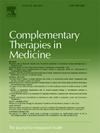Effects of black seed (Nigella sativa L.) on cardiometabolic indices in type 2 diabetic patients: A systematic review and meta-analysis of RCTs
IF 3.5
3区 医学
Q1 INTEGRATIVE & COMPLEMENTARY MEDICINE
引用次数: 0
Abstract
Background
Black seed is known for its health benefits in traditional medicine. While recent studies suggest it may improve cardiometabolic health, its impact on type 2 diabetes mellitus (T2DM) remains unclear. This study aims to meta-analysis randomized controlled trials (RCTs) to assess the effects of black seed supplementation on cardiometabolic indices in T2DM patients.
Methods
Following PRISMA guidelines, a comprehensive database search was conducted up to January 2025, and data were extracted from relevant RCTs. Mean differences (MD) and standard deviations (SD) were analyzed using a random-effects model, heterogeneity was assessed, and publication bias was evaluated.
Results
The pooled meta-analysis of 16 RCTs showed that black seed supplementation significantly reduced fasting blood glucose (FBG) (MD: −21.43 mg/dL; p = 0.005), hemoglobin A1c (HbA1c) (MD: −0.44; p = 0.01), total cholesterol (TC) (MD: −18.80 mg/dL; p = 0.04) and low-density lipoprotein (LDL) (MD: −19.53 mg/dL; p = 0.003). No significant effects were observed for 2-hour postprandial glucose (2-hpp), fasting insulin, homeostatic model assessment (HOMA), triglycerides (TG), high-density lipoprotein (HDL), aspartate aminotransferase (AST), alanine aminotransferase (ALT), creatinine, and body weight, or body mass index (BMI). Subgroup analyses revealed that black seed supplementation effectively reduced FBG for longer than 8 weeks; additionally, HbA1c, HOMA, and LDL in higher doses (>1 g/day), shorter durations (≤8 weeks), and use of the oil form.
Conclusion
Black seed supplementation appears to significantly improve FBG, HbA1c, TC, and LDL levels in patients with T2DM. However, no significant effects were observed on other metabolic parameters, including insulin, TG, liver enzymes, kidney function, or body weight. These findings suggest that black seed may be a beneficial adjunct therapy for glycemic and lipid control in T2DM patients but require further research to confirm its broader metabolic effects.
黑籽(Nigella sativa L.)对 2 型糖尿病患者心脏代谢指数的影响:对研究性临床试验的系统回顾和荟萃分析
黑籽在传统医学中以其健康益处而闻名。虽然最近的研究表明它可以改善心脏代谢健康,但它对2型糖尿病(T2DM)的影响尚不清楚。本研究旨在荟萃分析随机对照试验(rct),以评估黑籽补充剂对T2DM患者心脏代谢指标的影响。方法按照PRISMA指南,对截至2025年1月的数据库进行全面检索,并从相关随机对照试验中提取数据。采用随机效应模型分析平均差异(MD)和标准偏差(SD),评估异质性,并评估发表偏倚。结果16项随机对照试验的荟萃分析显示,黑籽补充剂显著降低空腹血糖(FBG) (MD:−21.43 mg/dL;p = 0.005),血红蛋白A1c (HbA1c) (MD:−0.44;p = 0.01),总胆固醇(TC) (MD:−18.80 mg/dL;p = 0.04)和低密度脂蛋白(LDL) (MD:−19.53 mg/dL; = 0.003页)。餐后2小时血糖(2-hpp)、空腹胰岛素、稳态模型评估(HOMA)、甘油三酯(TG)、高密度脂蛋白(HDL)、天冬氨酸转氨酶(AST)、丙氨酸转氨酶(ALT)、肌酐、体重或体重指数(BMI)均无显著影响。亚组分析显示,补充黑籽可有效降低FBG,持续时间超过8周;此外,高剂量(1 g/天)、短持续时间(≤8周)和使用油形式的HbA1c、HOMA和LDL。结论补充黑籽可显著改善T2DM患者的FBG、HbA1c、TC和LDL水平。然而,对其他代谢参数,包括胰岛素、TG、肝酶、肾功能或体重没有显著影响。这些发现表明黑籽可能是T2DM患者血糖和脂质控制的有益辅助疗法,但需要进一步研究来证实其更广泛的代谢作用。
本文章由计算机程序翻译,如有差异,请以英文原文为准。
求助全文
约1分钟内获得全文
求助全文
来源期刊

Complementary therapies in medicine
医学-全科医学与补充医学
CiteScore
8.60
自引率
2.80%
发文量
101
审稿时长
112 days
期刊介绍:
Complementary Therapies in Medicine is an international, peer-reviewed journal that has considerable appeal to anyone who seeks objective and critical information on complementary therapies or who wishes to deepen their understanding of these approaches. It will be of particular interest to healthcare practitioners including family practitioners, complementary therapists, nurses, and physiotherapists; to academics including social scientists and CAM researchers; to healthcare managers; and to patients. Complementary Therapies in Medicine aims to publish valid, relevant and rigorous research and serious discussion articles with the main purpose of improving healthcare.
 求助内容:
求助内容: 应助结果提醒方式:
应助结果提醒方式:


